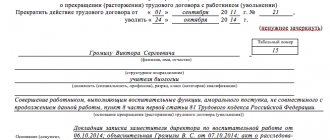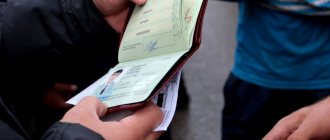ST 196 of the Criminal Code of the Russian Federation.
Intentional bankruptcy, that is, the commission by the head or founder (participant) of a legal entity or a citizen, including an individual entrepreneur, of actions (inactions) that obviously entail the inability of the legal entity or citizen, including an individual entrepreneur, to fully satisfy the claims of creditors for monetary obligations and (or) fulfill the obligation to pay obligatory payments, if these actions (inaction) caused major damage -
shall be punishable by a fine in the amount of two hundred thousand to five hundred thousand rubles, or in the amount of the wages or other income of the convicted person for a period of one to three years, or by forced labor for a term of up to five years, or by imprisonment for a term of up to six years with a fine in the amount of up to two hundred thousand rubles or in the amount of wages or other income of the convicted person for a period of up to eighteen months or without it.
Commentary to Art. 196 Criminal Code
1. Unlike Art. 195 of the Criminal Code in the crime in question, signs of bankruptcy are created specifically, purposefully.
2. The objective side is characterized by an act (action or inaction) that resulted in the debtor’s inability to satisfy the property claims of creditors. Such actions include, for example, receiving or providing on unfavorable terms, concluding unprofitable transactions, non-collection of accounts payable, etc. As a result, the debtor's insolvency and signs of bankruptcy should appear.
3. Criminal liability is provided if the intentional bankruptcy resulted in major damage (over 1.5 million rubles).
4. To bring a person to criminal liability, a decision of an arbitration court to declare a person bankrupt is not necessary.
5. The subject is special, directly specified in the law. Arbitration managers cannot be subjects of this crime, since by the time they are vested with managerial powers, signs of bankruptcy already exist.
Surrendered the beneficiary - avoided criminal liability
A note appears that applies to both articles. If the accused “actively contributed to the discovery of the crime, voluntarily reported on persons who benefited from the debtor’s illegal or dishonest behavior, disclosed information about the property (income) of such persons, the amount of which provided real compensation for the damage caused by this crime,” then this person is not subject to criminal liability will.
This note was written for directors and founders who have a shadow beneficiary behind them. The director must “mortgage” the beneficiary in full, and then the director will not face criminal charges. But with a condition - if the beneficiary’s property is enough to compensate for the damage caused to the budget. If it’s not enough, apparently the investigation will nab the director too.
Second commentary to Art. 196 of the Criminal Code of the Russian Federation
1. The objective side is deliberate bankruptcy, i.e. when the director or founder (participant) of a legal entity or an individual entrepreneur commits actions (inactions) that obviously entail the inability of the legal entity or individual entrepreneur to fully satisfy the claims of creditors for monetary obligations and (or) fulfill the obligation to pay mandatory payments, if these actions ( inaction) caused major damage.
The crime must result in major damage.
2. Composition - material.
3. The subjective side is characterized by intentional guilt.
4. The subject is the director or founder (participant) of a legal entity or an individual entrepreneur.
And now what i can do?
Understand that the risk of getting a criminal record increases significantly. This is becoming a real danger.
It follows that:
- measures must be taken in advance to protect company assets and personal assets
- will make sure in advance that it is impossible to put all the responsibility for bankruptcy on you.
Mechanisms that allow you to protect assets and legally avoid criminal liability exist, and we own them. A far-sighted director, founder and beneficiary are required not to hope for something to “get over it”, but to contact Tax Lawyers in advance, now, for advice and an assessment of the situation.
Legal protection of business managers and owners
We have our own methodology for comprehensive protection of top managers, founders and beneficiaries of a business. They minimize the risk of tax, criminal and subsidiary liability.
Find out more
Third commentary to Article 196 of the Criminal Code of the Russian Federation
1. The direct object is the relationships and legitimate interests of participants in economic activity, individual entrepreneurs and commercial organizations that are harmed when carrying out deliberate bankruptcy. The subject of the crime is monetary obligations and mandatory payments.
2. The objective side is characterized by the act, the consequences in the form of major damage and the causal relationship between them. Due to the change in the disposition of the article, the content of the act has undergone changes. It can be committed in the form of actions (inaction) that resulted in the debtor’s inability to fully satisfy the demands of creditors or make obligatory payments. The corpus delicti is material. The legislator associates its end with the infliction of major damage, which, in accordance with the note to Art. 169 of the Criminal Code of the Russian Federation means damage in an amount exceeding 1 million 500 thousand rubles.
3. The subjective side is characterized by an intentional form of guilt. At the same time, the legislator identifies the motive as a mandatory subjective feature. The perpetrator acts in personal interests or in the interests of others.
4. A special subject of a crime is an individual who has reached the age of 16 and is a director or founder (participant) of a legal entity or an individual entrepreneur.
‹ Article 195. Illegal actions in bankruptcyTop Article 197. Fictitious bankruptcy ›
Article 196. Intentional bankruptcy
The appeal ruling of the Judicial Collegium for Criminal Cases of the Supreme Court of the Russian Federation dated June 21, 2018 N 48-APU18-11SP, lawyer Ponomarev asks to cancel the verdict in connection with the verdict rendered by the illegal composition of the court, since during the selection of the jury, one of the candidates for jury A. concealed from participants in the process information on the questions that were asked by the parties, namely: answering questions about whether the candidates were brought to criminal liability, whether any of the candidates for jurors or their relatives were victims of crimes, even if they did not file a statement with law enforcement authorities, A. concealed that he applied to initiate a criminal case for extortion, as well as the fact that A. filed for bankruptcy of the UralPromInvest enterprise, about trials with his participation in claims of creditors for the recovery of 7,000,000 rubles, which may indicate the presence in his actions of signs of crimes provided for in Articles 195, 196, 199, 159 of the Criminal Code of the Russian Federation; asks to submit, in confirmation of this, optical disks with a copy of the article “Magnitogorsk businessman covers up frauds with a statement to the FSB” and a copy of this article on paper, as well as an inspection report made by a notary on the basis of Articles 102 and 103 of the Fundamentals of the Legislation of the Russian Federation on notaries at the request of the mother of the convicted Sh. and recording on an optical disc the video “... A. challenged President Putin” and an optical disc with the above video recording. In addition, the defense attorney refers to violations of the criminal procedural law committed when involving S. in the case, and therefore it is impossible to determine whose interests S. actually represented and whether anyone’s rights, which was supposed to protect S., were violated. which excluded a verdict based on the indictment presented to the court; asks to cancel the verdict and return the case to the prosecutor;
Determination of the Judicial Collegium for Criminal Cases of the Supreme Court of the Russian Federation dated January 22, 2019 N 9-UD18-26
convicted under Part 3 of Art. 159.4 of the Criminal Code of the Russian Federation to 2 years in prison. In accordance with Art. The Criminal Code of the Russian Federation assigned to Kolobov V.M. The punishment was determined to be suspended with a probationary period of 2 years. Based on clause 3, part 1, art. 24 Code of Criminal Procedure of the Russian Federation, paragraph “b”, part 1 of Art. Criminal Code of the Russian Federation Kolobov V.M. released from punishment due to the expiration of the statute of limitations for criminal prosecution. Kolobov V.M. acquitted under Part 4 of Art. 159 of the Criminal Code of the Russian Federation, Art. Art. 196, 197 of the Criminal Code of the Russian Federation on the basis of clause 2, part 1, art. 24 of the Code of Criminal Procedure of the Russian Federation due to the lack of corpus delicti, the right of V.M. Kolobov was recognized. for rehabilitation in accordance with Art. Art. 133, 134 Code of Criminal Procedure of the Russian Federation.
Appeal ruling of the Judicial Collegium for Administrative Cases of the Supreme Court of the Russian Federation dated August 28, 2017 N 43-APG17-12
From this message it follows that Vasiliev A.V. convicted by the Sarapul People's Court on December 17, 1996 under Part 1 of Article 196 of the Criminal Code of the RSFSR, and also on January 24, 2001 under Part 1 of Article 158 of the Criminal Code of the Russian Federation; Kozhevnikov M.I. convicted by the Industrial District Court of Izhevsk on April 19, 2012 under Part 3 of Article 160 of the Criminal Code of the Russian Federation; Kletskin O.S. Convicted by the Kungur City Court of the Perm Region on January 10, 2006 under Part 2 of Article 264 of the Criminal Code of the Russian Federation.
Ruling of the Supreme Court of the Russian Federation dated February 18, 2020 N 304-ES18-5746(7) in case N A45-17995/2016
The courts took into account the conclusions set out in the judicial acts that entered into legal force in case No. A45-35280/2017, within the framework of which the circumstances of the tax control measures taken against the debtor were established, as well as the circumstances established within the framework of the investigation initiated against V.A. Siebert . criminal case N 67316 under Part 4 of Article 159 (fraud) and Article 196 (deliberate bankruptcy) of the Criminal Code of the Russian Federation on the facts of withdrawal of funds from the debtor (including the conclusion of an expert from the federal budgetary institution Siberian Regional Forensic Center of the Ministry of Justice of the Russian Federation L. Postnikova. I. dated June 21, 2017 N 633-649/6-1).
Cassation ruling of the Judicial Collegium for Criminal Cases of the Supreme Court of the Russian Federation dated January 22, 2018 N 13-UD17-8
By the appeal ruling of the Rasskazovsky District Court of the Tambov Region dated January 18, 2022, the verdict against Kuznetsov A.N. changed, his actions were reclassified from Art. 324 of the Criminal Code of the Russian Federation (as amended by the Federal Law of December 8, 2003 N 162-FZ) at Part 1 of Art. , part 3 art. 196 of the Criminal Code of the RSFSR, Kuznetsov was released from the imposed punishment on the basis of Part 2 of Art. Criminal Code of the Russian Federation. The rest of the sentence was left unchanged.
Determination of the Constitutional Court of the Russian Federation dated January 16, 2018 N 9-O
In addition, on the basis of part five of article and article 196 of the Criminal Code of the Russian Federation, a criminal case was initiated against G., the bankruptcy manager of Karpak-N LLC, on the fact of her complicity in the deliberate bankruptcy of the said company. In the framework of this criminal case, the Nalchik City Court of the Kabardino-Balkarian Republic, having come to the conclusion that G., using the powers granted to her, can take measures for the deliberate bankruptcy of the debtor, by a resolution dated April 17, 2015, granted the petition of the head of the Department of the Investigation Department of the Ministry of Internal Affairs cases in the Kabardino-Balkarian Republic on her temporary removal from the post of bankruptcy manager of Karpak-N LLC in accordance with Article 114 of the Code of Criminal Procedure of the Russian Federation. This resolution was left unchanged in this part by the appeal ruling of the Supreme Court of the Kabardino-Balkarian Republic dated June 2, 2015.
Ruling of the Supreme Court of the Russian Federation dated February 28, 2018 N 308-ES17-6757(2.3) in case N A22-941/2006
At the same time, the courts rejected the bank’s objection to the bankruptcy manager Nogotkov K.O. limitation period for the stated claims. As the courts indicated, by the above-mentioned verdict, the former bankruptcy trustee Dolzhenko A.N. (who exercised powers before the ruling on the completion of the procedure dated October 22, 2007; the criminal case against him served as the basis for reopening the debtor’s insolvency case) was convicted of complicity in deliberate bankruptcy (part 5 of the article and article 196 of the Criminal Code of the Russian Federation). In particular, the objective side of the crime consisted of actions (inaction), expressed in the failure to take the necessary measures to bring controlling persons to subsidiary liability for the obligations of the debtor.
Determination of the Judicial Collegium for Economic Disputes of the Supreme Court of the Russian Federation dated 08/06/2018 N 308-ES17-6757(2.3) in case N A22-941/2006
At the same time, the courts rejected the bank’s objection to the bankruptcy manager Nogotkov K.O. limitation period for the stated claims. As the courts indicated, by the above-mentioned verdict, the former bankruptcy trustee Dolzhenko A.N. (who exercised powers before the ruling on the completion of the procedure dated October 22, 2007; the criminal case against him served as the basis for reopening the debtor’s insolvency case) was convicted of complicity in deliberate bankruptcy (part 5 of the article and article 196 of the Criminal Code of the Russian Federation). In particular, the objective side of the crime was inaction, expressed in the failure to take the necessary measures to bring controlling persons to subsidiary liability for the debtor’s obligations.
Ruling of the Supreme Court of the Russian Federation dated October 22, 2018 N 307-ES18-16221 in case N A21-207/2017
In terminating the proceedings on the application, the court of first instance, guided by the provisions of paragraph 1 of part 1 of Article 150 of the Arbitration Procedure Code of the Russian Federation, Articles 196 and 197 of the Criminal Code of the Russian Federation, proceeded from the non-jurisdiction of this dispute to the arbitration court, which the courts of appeal and cassation subsequently agreed with.
Ruling of the Supreme Court of the Russian Federation dated December 4, 2018 N 309-ES18-19549 in case N A60-56083/2016
The indication in the complaint of possible elements of a crime under Article 196 of the Criminal Code of the Russian Federation and the existence of doubts about the legality of introducing bankruptcy proceedings against Uralenergoservis LLC do not indicate a miscarriage of justice, since they do not refute the conclusions of the courts about the expiration of the statute of limitations.
Resolution of the Supreme Court of the Russian Federation dated August 17, 2017 N 18-UD17-56
convicted for each of the eight crimes provided for in Part 1 of Art. 176 of the Criminal Code of the Russian Federation to 1 year of imprisonment, under Art. 196 of the Criminal Code of the Russian Federation to 5 years in prison with a fine of 180,000 rubles, to be served in a maximum security correctional colony.








